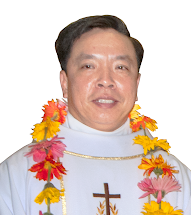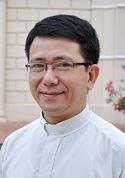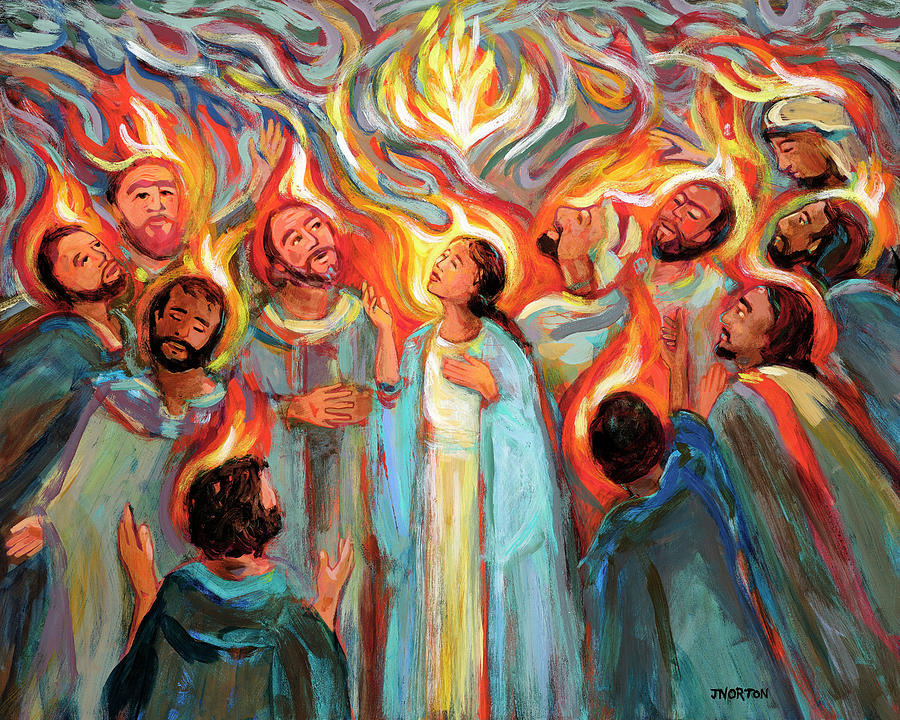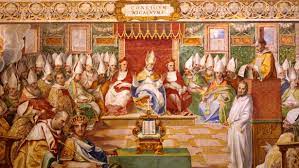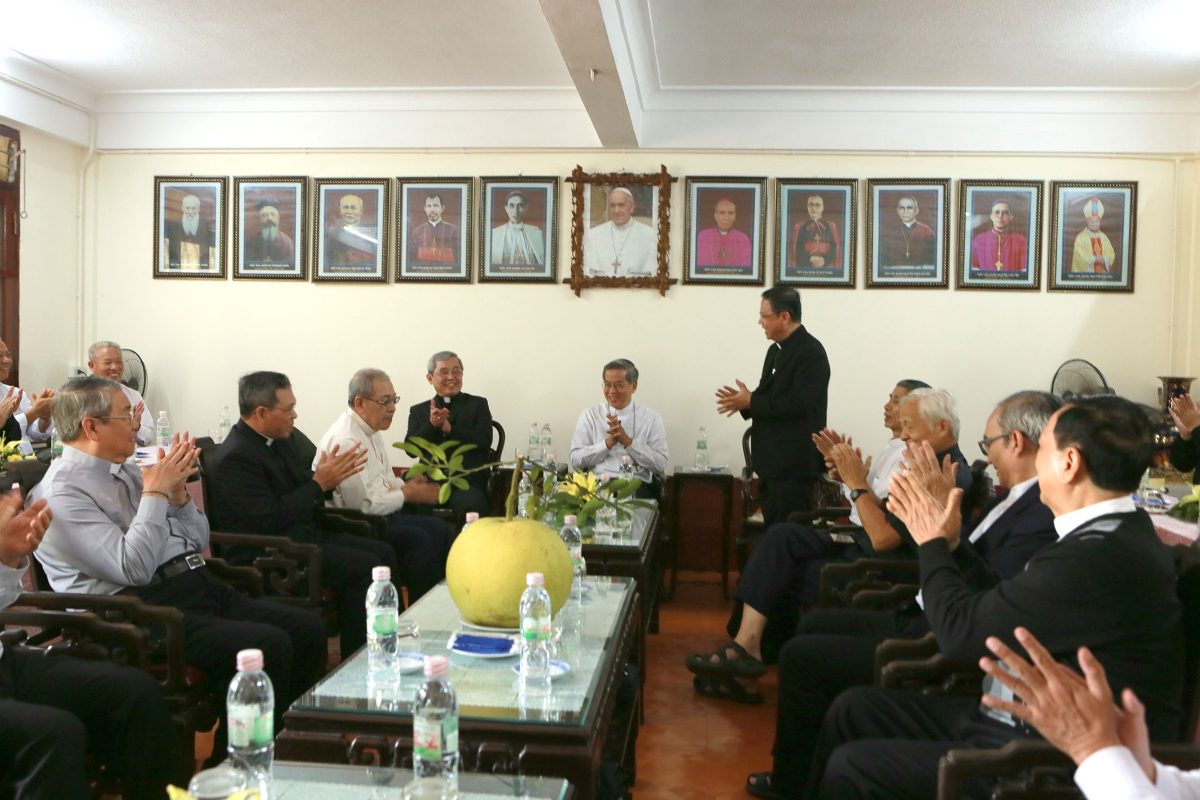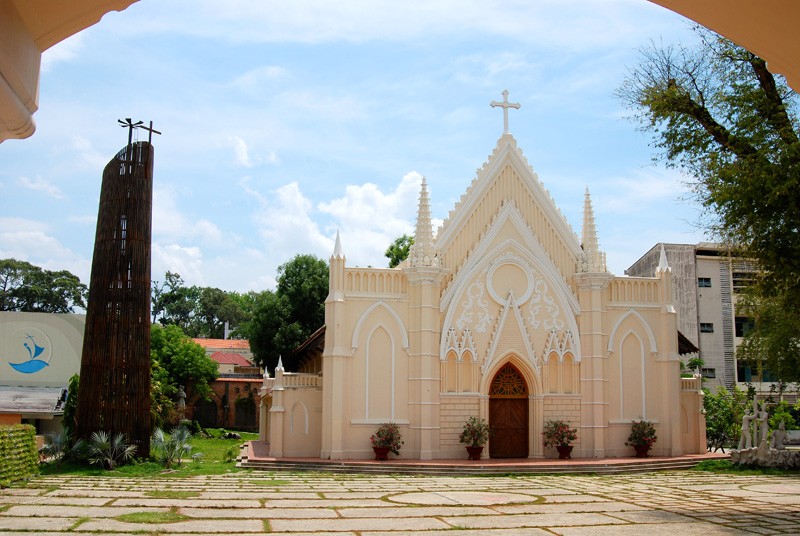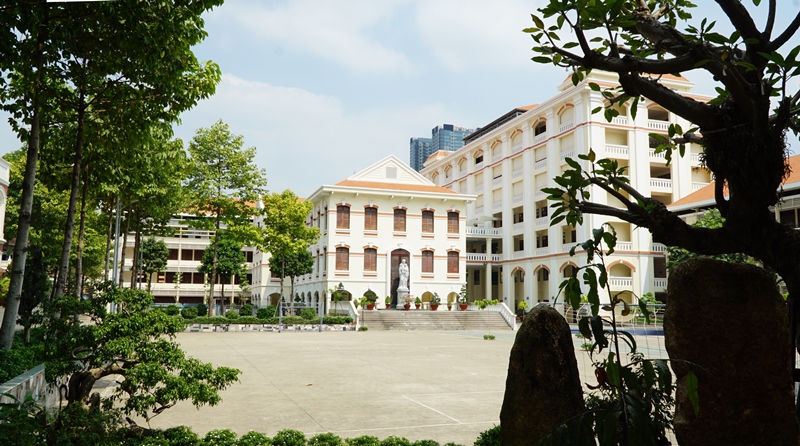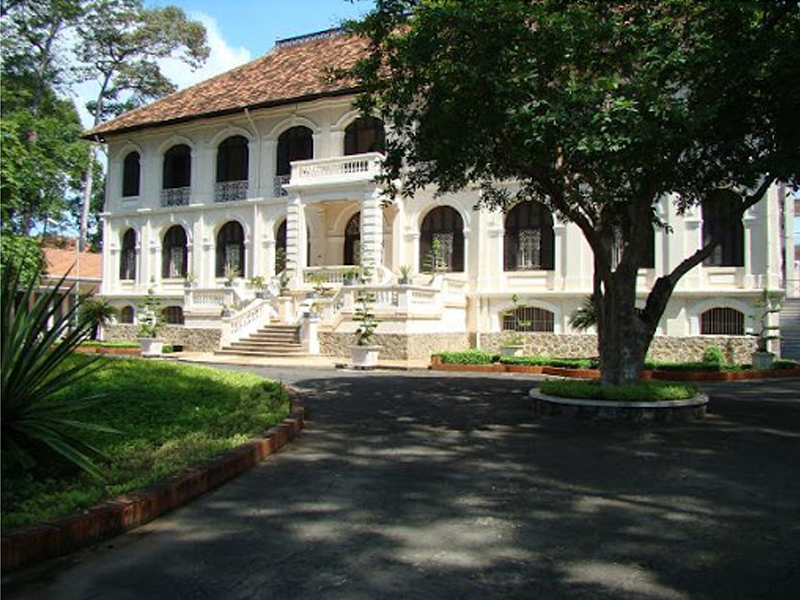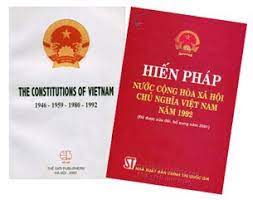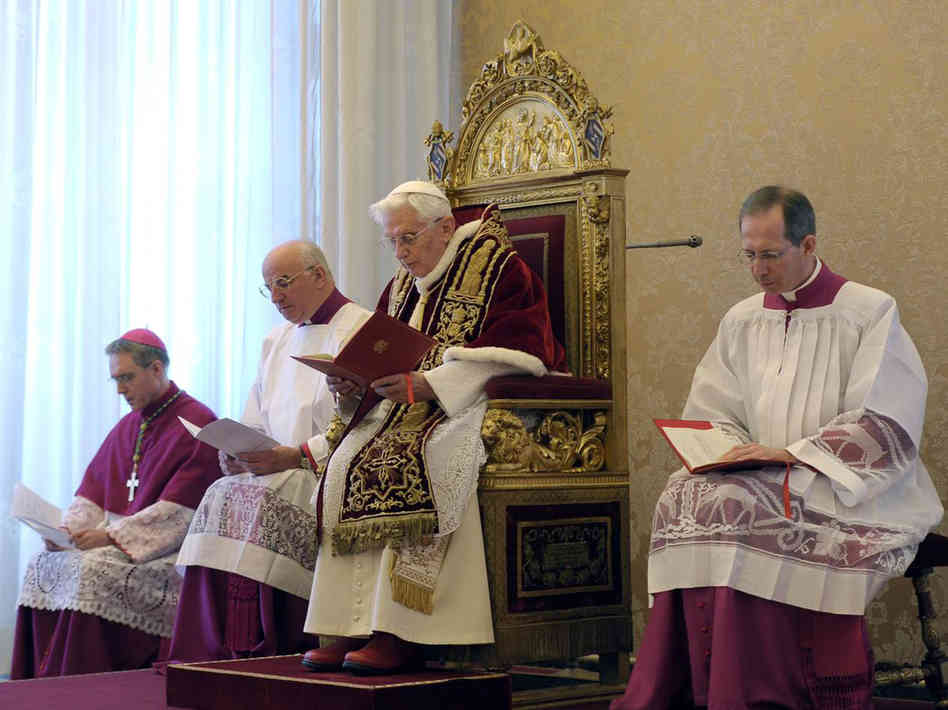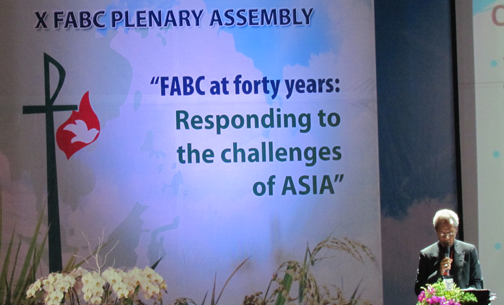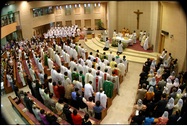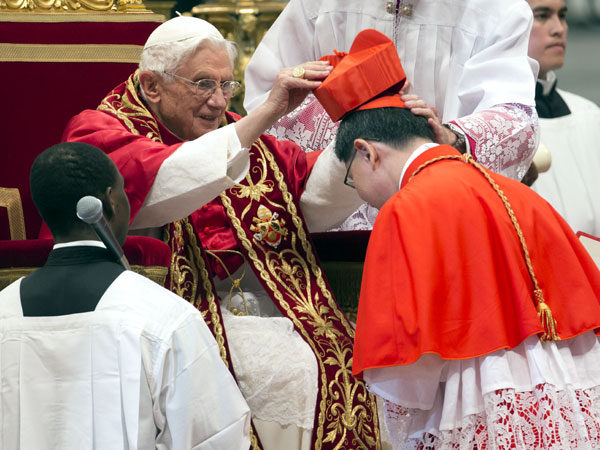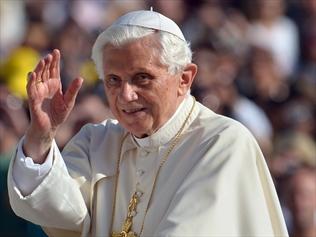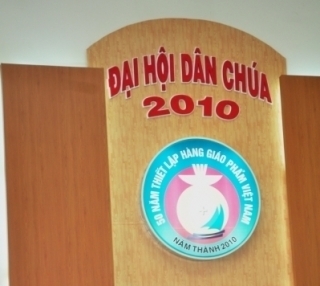Asia’s Bishops: Church Needs Renewed Evangelizers
 James H. Kroeger, a Maryknoll Missioner, has served in Asia (Philippines and Bangladesh) since his 1970 arrival in the Orient. He holds a doctorate degree in missiology from the Gregorian University in Rome. Currently, he is regular professor in Manila at Loyola School of Theology, East Asian Pastoral Institute, and Mother of Life Catechetical Center. He has written extensively on Asian and Philippine theology, mission and interfaith dialogue, as well as the Second Vatican Council. He may be contacted at: jhkroeger@gmail.com
James H. Kroeger, a Maryknoll Missioner, has served in Asia (Philippines and Bangladesh) since his 1970 arrival in the Orient. He holds a doctorate degree in missiology from the Gregorian University in Rome. Currently, he is regular professor in Manila at Loyola School of Theology, East Asian Pastoral Institute, and Mother of Life Catechetical Center. He has written extensively on Asian and Philippine theology, mission and interfaith dialogue, as well as the Second Vatican Council. He may be contacted at: jhkroeger@gmail.com
This article of his has three parts, an introduction and two appendices. ALL THREE PARTS are essential to understand completely what transpired during the Tenth Plenary Assembly of the Federation of Asian Bishops’ Conferences (FABC) in Vietnam.
The main body of the text presents a narrative of the events; Appendix A provides a glimpse into FABC theology; Appendix B provides the spirituality needed for the new evangelization. In short, the entire document presents the narrative, the theology, and the spirituality. Thus, in three parts the paper attempts to be a comprehensive overview.
Asia’s Bishops: Church Needs Renewed Evangelizers
Celebrating its fortieth or ruby anniversary (1972-2012), the Federation of Asian Bishops’ Conferences (FABC) gathered in Vietnam for its Tenth Plenary Assembly from December 10-16, 2012. The venue for the working sessions was the spacious compound of the Catholic Diocese of Xuan Loc, located about a three-hour drive east of Ho Chi Minh City. For the bishops, clergy, religious, and faithful of Xuan Loc Diocese hosting this event was a wish come true, almost a “miracle.” The closing ceremonies on December 16 were hosted by the Ho Chi Minh Archdiocese.
The participants of FABC X numbered 111. Among them were seven Asian cardinals: G. Rosales of Manila who served as Papal Envoy; O. Gracias of Mumbai, FABC Secretary General, J. B. Pham Minh Man of Ho Chi Minh; T. Toppo of Ranchi; J. Tong Hon of Hong Kong; M. Ranjith of Colombo; and, L. A. Tagle of Manila. In addition, there were 69 bishops and 35 priests, religious and laity. The theme of the assembly was: “FABC at Forty Years—Responding to the Challenges of Asia: New Evangelization.”
The FABC has been the most influential body in the Asian Church since the Second Vatican Council; it has validly been seen to be “Asia’s Continuing Vatican II.” This continental assembly of Asian Church leaders emerged from the gathering of 180 Asian Bishops with Pope Paul VI in Manila in 1970. After this Asian Bishops’ Meeting, proposals for a permanent structure which would connect the Catholic Bishops of Asia with each other and foster pastoral-missionary exchanges and interaction were forwarded to Rome. Pope Paul VI agreed to the proposals and gave the body his initial approval in 1972. Currently, the FABC encompasses 19 bishops’ conferences (originally there were only 11) and 9 associate members; East Timor is the most recently incorporated bishops’ conference. In total, FABC includes 29 Asian countries in its jurisdiction.
Opening Activities. During the initial Eucharist, Cardinal Rosales, Papal Legate, conveyed the wish of Pope Benedict XVI that the bishops of Asia “manifest, by their renewed strength and zeal, the love of Christ, the Church and the Gospel … [and] foster human culture and diligently pursue dialogue among the peoples.” At the public opening ceremony, welcome remarks and greetings were offered by various Church officials as well as by Vietnamese Government Representatives.
The first major agenda item focused on a panoramic historical review of the FABC journey over the past four decades (since many younger bishops have limited knowledge of FABC origins). The content of the 1970 bishops’ meeting with Paul VI in Manila was reviewed. The series of early follow-up meetings was recounted. The roles of various pivotal figures were mentioned, particularly Bishop Francis Hsu of Hong Kong and Korean Cardinal Stephen Kim, who is often called the “Father of FABC.” It was Cardinal Kim along with two other FABC pioneers who took the initial proposals to Rome and personally asked Paul VI for his blessing and approval, provisionally granted in 1972.
Father Raymond Ambroise, executive secretary of the FABC Office of Social Communication, briefly shared the highlights of his lengthy paper on the history, vision, membership, structure, function, and activities of the FABC and each of its nine offices (Human Development; Social Communication; Laity and Family; Theological Concerns; Education and Faith Formation; Ecumenical and Interreligious Affairs; Evangelization; Clergy; and, Consecrated Life). A helpful synopsis of the previous nine plenary assemblies was also presented. The FABC website is home to a plethora of information about these matters.
Maryknoll Father James Kroeger highlighted the past four decades of “FABC theologizing” by providing a brief review of ten pivotal themes that are woven into FABC literature and documents. The theological underpinnings of the FABC vision of the local Church and its evangelizing mission are pivotal for an in-depth appreciation of the unique role FABC plays in Asia. Kroeger highlighted such themes as the “pastoral spiral methodology,” laity and innovative pastoral ministries, as well as the famed FABC “triple dialogue” with Asia’s people (especially the poor), cultures, and religions. Note: a synopsis version of this presentation is included here as Appendix A: “Four Decades of FABC Theology.”
Major Document. The Presider at the Eucharist on the second working day of the assembly was Vietnam’s Cardinal Jean-Baptiste Pham Minh Man. He noted the many losses of the Vietnamese people after 1975 as well as the many new freedoms they experience today. He mentioned three anchors that guide his pastoral ministry. “I keep firm faith in Jesus, listening and keeping His Word in my heart.” He continues to cooperate with the Holy Spirit, who “is working to renew our mind and open our heart to respond to the challenges of social life.” The cardinal always looks to “the example of our Blessed Mother and our martyrs.” In this way he hopes to respond to “so many people in need of the living water of Christ.”
The major task of the day was to review, critique, and augment the assembly working paper written by Archbishop Orlando Quevedo of Cotabato, Philippines; the process unfolded in plenary as well as in regional sub-group sessions. The 30-page text is based on the theme of FABC X: “FABC at Forty Years—Responding to the Challenges of Asia: New Evangelization.” The document has four sections. Section One outlines FABC history and highlights the theme of every previous plenary assembly. Section Two examines 15 “megatrends” that “shape the evangelizing mission of the Church in Asia”: globalization, culture, poverty, migrants and refugees, indigenous peoples, population, religious freedom, threats to life, social communication, ecology, laity, women, youth, Pentecostalism, and vocations. The next section of the text offers a theological basis for the Church’s proclamation and evangelizing mission. Lastly, the document briefly outlines the prophetic role of the Church dedicated to a “new evangelization” based upon the FABC’s understanding of “a new way of being Church in Asia.”
Special Interventions. Throughout the assembly time was made available for a variety of interventions coming from individuals within the member Episcopal conferences. Archbishop Leo Jun Ikenaga of Osaka, Japan highlighted the natural and human-made threats to life, citing in particular the destruction wrought by the 2011 earthquake and tsunami as well as the compounded problems that the Fukushima nuclear plant inflicted on the Japanese people. In a moving testimony, Korean Bishop Peter Kang U-il of Cheju apologized to the Vietnamese people for the 5,000 civilians whom Korean troops summarily executed between 1968 and 1974. The bishop also recalled that, based on various sources, the South Korean forces also killed more than 40,000 Vietnamese in military actions.
Archbishop Savio Hon Tai-Fai, the Secretary of the Congregation for the Evangelization of Peoples in Rome, addressed the assembly concerning the current situation of the Church in China. Father Roberto M. Ebisa, SVD, General Manager of Radio Veritas Asia made a comprehensive report on the status, progress, and changes of this FABC “voice of evangelization.” Fraternal delegates from three Episcopal conferences (Europe, Latin America, and Oceania) expressed their appreciation for collaboration with the FABC. Delegates from mission partners and funding agencies (Missio and Miserior) described current realities affecting their relationship with FABC. The delegate from Timor Leste noted how their episcopal conference has been assisted by the vision of FABC. The assembly was enriched by the voices of the bishops from the Central Asian Republics and those of brother-bishops of the Syro-Malabar and Syro-Malankara Bishops’ Conferences from India. Present also was Archbishop Leopoldo Girelli who is the Holy See’s non-residential pontifical representative for Vietnam.
The assembly gave special recognition to Sister Mary Walter Santer, OSU, current executive secretary of the Office of Consecrated Life, for her more than three decades of dedicated service to FABC; as she approaches retirement, the plenary assembly body affectionate noted her generosity of spirit and her close collaboration with Father Edward Malone, MM, who served as the first FABC assistant secretary for over thirty years.
Reports and Business Matters. The celebrant of the Eucharist on the third working-day of the conference was Cardinal John Tong Hon of Hong Kong, who said: “May I ask your prayers to bring us help to resolve the difficulties encountered in China-Vatican relations?” The cardinal noted that it is “a blessing for the FABC and for the universal Church” to hold an “important” gathering of the Asian Church in Vietnam. He continued: “This is a breakthrough in relations, and the result of much promising dialogue between the Church in Vietnam and the Vatican, and between the Vietnamese government and the Holy See…. I hope one day that the FABC assembly can take place in mainland China. [But] before reaching this goal, the issue of the appointment of bishops in China must first be resolved because some bishops in China are still illegitimate. Thus a dialogue between China and the Holy See is urgently needed.”
The morning of the third day of the assembly was given to discussions by the nine regional groupings with the task of studying the megatrends affecting the Church’s mission of evangelization in Asia; the trends were evaluated and additional ideas surfaced. These discussion groups were also to focus on concrete pastoral imperatives needed in the local Churches and across Asia. It was foreseen that the collated results of these discussions would be added as pastoral recommendations to the main text, as it went through refinement during the week-long assembly.
The afternoon of this third day was given to reports by the nine FABC Offices. Each Office prepared a written report of its activities since the 2009 IX Plenary Assembly held in Manila; the verbal report sought only to highlight the most significant activities of the offices in the years 2009-2012 [FABC plenary assemblies are normally held every four years]. As was practiced on the previous two evenings, the day concluded with the solemn and reverent Taizé Night Prayer in the presence of the Blessed Sacrament.
Recommendations. Cardinal Malcolm Ranjith presided at a simple Eucharist on the fourth working day of the assembly. The bulk of the day’s sessions was spent on discussing, augmenting, and refining the two assembly documents: the Message and the Final Document. Of special interest are the ten recommendations added to the Final Document; they were selected from a variety of material emerging from the regional discussion groups. One recommendation was forthcoming on the topics of faith formation, poverty, threats to life, dialogue and peace, indigenous peoples, and the availability of the FABC documents; two recommendations were made on the topics of ecology and migrants and itinerant peoples.
Two examples will suffice to portray the nature of the pastoral recommendations. On the topic of poverty, the FABC noted: “That local churches promoting a culture of evangelical poverty, foster among all pastoral agents a deep concern for the poor so as to credibly witness to the Lord Jesus who had a preferential love for the poor.” Another recommendation asserts: “That Episcopal conferences, particular and local churches make available the FABC Plenary Assembly documents in local languages so the thinking of Asian Bishops regarding the renewal of the Church may be accessible to our people.”
A heartfelt commitment concludes the Final Document; it reads: “In this Year of Faith and on the fortieth anniversary of the FABC we firmly commit ourselves and our resources to the Church’s mission of New Evangelization—to proclaim Jesus as the Lord and tell his story to the peoples of Asia with new ardor, new methods and new expressions.” An impressive and thoroughly enjoyable cultural evening concluded the day.
Final Message. As the assembly drew to its conclusion, the bishops approved the Message to the People of God; the well-framed document was the result of the dedication of Father Jacob Theckanath, principal drafter. The beautiful title superbly captures the spirit of the week-long prayerful reflections: “Renewed Evangelizers for New Evangelization in Asia.” One finds much inspiration in the document: “This has truly been a Week of Faith.” “At the core of the New Evangelization … is the clarion call to be authentic and credible witnesses of Jesus the Lord and Savior.” “We need to live a spirituality of New Evangelization.” “If we exist for mission, we need to have a passion for mission.” “May Mary, the Mother of Jesus and our Mother, accompany us as we walk the roads of Asia, to ‘tell the story of Jesus’.” Note: due to the importance of the “Message of Tenth FABC Plenary Assembly” and its modest size, the full text is included here as Appendix B.
Conclusion and Gratitude. Having completed the working sessions on the fifth day of the assembly, the participants traveled back to Ho Chi Minh City, where everyone was hosted for a Saturday-evening Eucharist by fourteen different city parishes. The closing Eucharist, presided by Cardinal Oswald Gracias, was held in the majestic Ho Chi Minh City Cathedral on December 16, Third Sunday of Advent. Selections of the Final Message were read at the conclusion of the Eucharist; several messages of gratitude were also delivered. With particular affection Cardinal Gracias thanked Cardinal Pham Minh Man, whom he called the “Patriarch of the Church in Vietnam.” Cardinal Man hosted a closing lunch at his residence.
Participants of Tenth FABC Plenary Assembly were at a loss for words to adequately express their gratitude for the exquisite hospitality and preparations made to assure the success of this first major international gathering of the Catholic Church in Vietnam in several decades. Delegates lauded the efficiency and generosity of the local Church, its leaders and the many fervent laity. The friendship and openness of the Vietnamese people were warmly received and then reciprocated. Everyone witnessed and praised the vibrant spiritual life of the Church in Vietnam. The entire Church in Asia—in fact, the Universal Church—stands to be greatly enriched and blessed by the many gifts the Local Church in Vietnam has to give and share.
APPENDIX A:
FOUR DECADES OF FABC THEOLOGY
Pivotal Characteristics and Emphase
James H. Kroeger, M.M.
Many approaches are possible when one attempts to capture the growth and evolution of “FABC theologizing” since the historic meeting of Pope Paul VI with 180 Asian bishops in Manila in November 1970. One helpful attempt to present this corpus of material would be to chronicle the “ten FABC plenary assemblies” with their profound insights. A second approach would be to trace the “movements toward a renewed Church in Asia” as was done in the FABC VII final document [For All the Peoples of Asia (FAPA) III: 3-4]. Thirdly, various theologians have identified “pivotal themes”; see C. Arévalo and F. Wilfred [FAPA I: xv-xxii], S. Bevans [FABC Papers 78] and E. Chia [FABC Papers 106]. Fourthly, one could explore the numerous “doctoral dissertations” written on various FABC key themes in the 40-year “historical-theological-pastoral-missionary” FABC journey [Theology from the Heart of Asia: I-II; FABC Papers 125: 45-48]. Based on consultation with some “FABC Fathers,” this brief presentation highlights ten focuses that lie at the heart of FABC Theology. In a word, this paper employs “pivotal theological currents” to capture the forty-year FABC historical evolution.
I. Inductive Approach and Pastoral Spiral Methodology.
Generally, FABC theologizing begins in the concrete context, endeavoring to explore life’s realities as the locus of doing theology. In their 1970 meeting the Asian bishops noted their sincere efforts “to open our minds and hearts to the needs and aspirations of our peoples … [and] to look upon the face of Asia” [FAPA I: 3]. The FABC Office of Theological Concerns issued its lengthy “Methodology: Asian Christian Theology (Doing Theology in Asia Today)” in 2000 [FAPA III: 329-419; FABC Papers 96]. BISA VII (1986) enunciated the “Pastoral Cycle,” (later renamed the “Pastoral Spiral”) which is comprised of four stages: first: exposure and immersion; second: social analysis and an examination of the “human impact” of life’s realities upon people; third: the contemplative dimension which seeks to “discover God’s presence and activity within social reality”; and, fourth: pastoral planning which “seeks to translate the previous three stages into actual, realizable plans” [FAPA I:229-233]. The FABC has widely promoted the AsIPA method (Asian Integral Pastoral Approach) as one way to foster the growth of a participatory and co-responsible Church through the development of basic ecclesial communities; an AsIPA Desk within the Office of Laity and Family was established in late 1993. The inductive theological approach was once again employed in the Tenth Plenary Assembly (2012) as it explored “mega-trends in Asia” as the best way of “responding to the challenges of Asia” and fostering a “new evangelization.”
II. Jesus’ Vision of the Reign of God within an Asian Context.
For the Asian bishops, “seeking the Kingdom of God that Jesus proclaimed is really to build it in the concrete experiences of the social, political, economic, religious and cultural world of Asia…. The struggle for fullness of life in Asia is a seeking of the Kingdom” [FAPA I: 196]. In a 1991 theological consultation sponsored by the FABC Office of Evangelization, it was noted: “The Kingdom of God is … universally present and at work. Wherever men and women open themselves to the transcendent divine mystery which impinges upon them and go out of themselves in love and service to fellow humans, there the Reign of God is a universal reality, extending far beyond the boundaries of the Church” [FAPA I: 341]. Again, it is asserted: “Therefore, we commit ourselves: … To take every opportunity to make Jesus Christ and his message known in a way that is acceptable to Asians, presenting him to them with an ‘Asian face,’ using Asian cultural concepts, terms, and symbols; … To present the Gospel message as humble servants of the Kingdom of God, always sensitive to the religious and cultural traditions of the people where the Spirit leads us to make Jesus known” [FAPA III: 206].
III. Local Church as Primary Actor.
The First FABC Plenary Assembly (1974) stated: “The primary focus of our task of evangelization then, at this time in our history, is the building up of a truly local church. For the local church is the realization and the enfleshment of the Body of Christ in a given people, a given place and time…. The local church is a church incarnate in a people, a church indigenous and inculturated. And this means concretely a church in continuous, humble and loving dialogue with the living traditions, the cultures, the religions….” [FABC I: 9-12; FAPA I: 14]. FABC V (1990) asserted that “the acting subject of mission is the local church living and acting in communion with the universal Church. It is the local churches and communities which can discern and work out (in dialogue with each other and with other persons of goodwill) the way the Gospel is best proclaimed, the Church set up, the values of God’s Kingdom realized in their own place and time. In fact, it is by responding to and serving the needs of the people of Asia that the different Christian communities become truly local churches. This local church, which is the acting subject of mission, is the people of God in a given milieu, the whole Christian community—laity, Religious and clergy. It is the whole diocese, the parish, the Basic Ecclesial Community and other groups. Their time has come for Asia” [FABC V: 3.3.1-2; FAPA I: 281].
IV. Dialogue as the Mode of Presence in Asian Contexts.
Asia is a continent rich in diverse faith traditions; 85% of all the world’s non-Christians live in Asia. Asia’s bishops have a deep appreciation of the role of dialogue in the evangelization process; they hold: “Interreligious dialogue is another integral part of evangelization which in the situation of our Churches needs to become a primary concern. We live in the midst of millions of people belonging to the great religious traditions…. In this context we believe that interreligious dialogue is a true expression of the Church’s evangelizing action in which the mystery of Jesus Christ is operative, calling us all to conversion” [FAPA I: 100-101]. “The Church, the sacrament of God’s message in the world, continues Christ’s work of dialogue…. The Christian finds himself continually evangelizing and being evangelized by his partners in dialogue” [FAPA I: 115]. “Mission may find its greatest urgency in Asia: it also finds in our continent a distinctive mode [dialogue]” [FAPA I:281]. FABC III (1982) sought to promote “a true and real ‘dialogue of life’ with one another” in the Asian context [FAPA I: 64]. “Dialogue does not call for giving up one’s commitment, bracketing it or entering into easy compromise. On the contrary, for a deeper and fruitful dialogue, it is even necessary that each partner be firmly committed to his or her faith” [FAPA I: 309-310]. See also: “Dialogue: Interpretive Key for the Life of the Church in Asia,” [FABC Papers 130].
V. Interiority and Motivation for Mission.
FABC II (1978), with its theme “Prayer—The Life of the Church in Asia,” [FAPA I: 27-48], focused on the need for deep spirituality in the Asian Church. There must be “contact with the living God”; “prayer commits us to the true liberation of persons. It binds us to solidarity with the poor and the powerless” [FAPA I: 31, 33]. FABC V (1990) enunciated an Asian perspective on “motivation for mission,” seeking to answer the perennial question: Why should we evangelize? Five motives are noted: “We evangelize, first of all, from a deep sense ofgratitude to God…. Mission is above all else an overflow of this life from grateful hearts transformed by the grace of God…. Without a personal experience of this love received as gift and mercy, no sense of mission can flourish. But mission is also a mandate. We evangelize because we are sent into the whole world to make disciples of all nations…. We evangelize also because we believe in the Lord Jesus. We have received the gift of faith…. We evangelize also because we have been incorporated by baptism into the Church, which is missionary by its very nature…. And finally, we evangelize because the Gospel is leaven for liberation and for the transformation of society [FABC V: 3:2; FAPA I: 280-281]. FABC IX in Manila (2009) focused its entire attention on the Eucharist and its pivotal role in Christian life; see Living the Eucharist in Asia [FABC Papers 129].
VI. Mission: Announcing the Person and Promises of Christ.
The Churches of Asia see a clear Christological component to evangelization; they assert: “While we are aware and sensitive to the fact that evangelization is a complex realty and has many essential aspects … we affirm that there can never be true evangelization without the proclamation of Jesus Christ. The proclamation of Jesus Christ is the center and the primary element of evangelization without which all other elements will lose their cohesion and validity” [FAPA I: 292]. During FABC V (Bandung, 1990), Asia’s bishops stated: “We affirm … that ‘the proclamation of Jesus Christ is the center and primary element of evangelization.’ … But the proclamation of Jesus Christ in Asia means, first of all, the witness of Christians and Christian communities to the values of the Kingdom of God, a proclamation through Christ-like deeds. For Christians in Asia, to proclaim Christ means above all to live like him, in the midst of our neighbors of other faiths and persuasions, and to do this by the power of his grace. Proclamation through dialogue and deeds—this is the first call to the Churches in Asia” [FAPA I: 281-282]. Thus, “the local Churches of Asia will proclaim Jesus Christ to their fellow humans in a dialogical manner” [FAPA I: 346].
VII. Role of Laity in a “New Way of Being Church.”
FABC IV (Tokyo, 1986) focused on “The Vocation and Mission of the Laity in the Church and in the World of Asia” [FAPA I: 177-198]. This FABC assembly explored the role of laity in such areas as politics, youth, women, family, education, mass media, health services, work and business, identifying these areas as “the signs of the times” which are to “be discerned by Christians and the Church of Asia.” FABC VI asserted: “It is in the faith response we give these challenges that we will discern and discover the vocation and mission of the laity for the salvation of Asia…. Such a commitment by all Christians will make the Church a communion of committed disciples—be they clergy or laity—working for the liberation of Asia” [FAPA I: 191]. FABC VIII (Daejeon, Korea, 2004) reflected deeply on the Asian Family [FAPA IV: 1-61]. One may note that the FABC Office of Laity and Family has three specialized desks (women, AsIPA, and youth) linked into its wide areas of concern.
VIII. Engagement with and the Evangelization of Cultures.
FABC I (Taipei, 1974) asserted that the Church in Asia must become “a Church incarnate in a people, a Church indigenous and inculturated. And this means concretely a church in continuous, humble and loving dialogue with the living traditions, the cultures, the religions—in brief, with all the life-realities of the people in whose midst it has sunk its roots deeply and whose history and life it gladly makes its own. It seeks to share in whatever truly belongs to that people: its meanings and its values, its aspirations, its thoughts and its language, its songs and its artistry—even its frailties it assumes, so that they too may be healed. For so did God’s Son assume the totality of our fallen human condition (save only for sin) so that He might make it truly His own, and redeem it in His paschal mystery” [FAPA I: 14]. In fact, the Asian Bishops’ Meeting in 1970 had already spoken of “the inculturation of the life and message of the Gospel in Asia” which will flow from “a deep respect for the culture and traditions of our peoples” [FAPA I: 6]. This dialogue with cultures forms one dimension of the famed FABC “triple dialogue.” An in-depth “faith-culture” dialogue is pivotal for understanding the challenges of the new evangelization!
IX. Faith-motivated Liberating Engagement in Society.
The Office of Human Development, considered to be the first FABC Office (1971), helped focus attention on the social needs of the majority of Asian people who are poor; its emphasis was heavily influenced by the 1970 visit of Paul VI and his Populorum Progressio (1967). The Asian Bishops (1970) noted: “It is our resolve, first of all, to be more truly ‘the Church of the poor’ [and to] place ourselves at the side of the multitudes in our continent” [FAPA I: 5]. The Sixth FABC Plenary Assembly in Manila (1995—25 years after the 1970 gathering of the Asian Bishops with Pope Paul in Manila) explored the meaning of Christian discipleship in Asia. The assembly identified “five concerns that require pastoral focus”: the Asian family, women and the girl-child, the youth, ecology, and the displaced (refugees and migrants) [FAPA II: 10-12].
X. Promotion of Innovative Pastoral Ministries.
The FABC-sponsored “Asian Colloquium on Ministries in the Church” (1977) saw the need to create “new forms of ministries, alongside the existing ones … [because] the servant Church can never adequately exercise her ministeriality through one uniform type of ministry” [FAPA I: 78]. The colloquium deepened the Church’s awareness that as she is lead by her servant Lord, she “has to discover time and again what ministries and ministerial structures she requires in order to fulfill her mission to offer to a human society the salvation brought about by Jesus Christ and to enable the members of that society to become what God intends them to be” [FAPA I: 72]. The assembly proceeded to identify over a dozen possible specialized ministries [FAPA I: 78-81]. These innovations will enable Asian Churches to “become truly Asian in all things” [FAPA I: 72].
Synthesis: Diagram of the FABC Paradigm of Evangelization. For four decades (1972-2012) Asia’s Christian communities have been striving to build an “evangelizing Church” in Asia (expressed in the following “triple dialogue” diagram):
ASIA’S PEOPLE (POOR)
LOCAL CHURCH <<< DIALOGUE >>> ASIA’S CULTURES
(subject) (mode) ASIA’S RELIGIONS
This paradigm of missionary evangelization in Asia was initially enunciated in the First FABC Plenary Assembly in 1974. It struck a deep chord with Asia’s bishops and Christian communities, precisely because it captures the mind and mission of the local Churches, who struggle to be “in continuous, humble and loving dialogue with the living traditions, the cultures, the religions—in brief, with all the life-realities of the people” [FAPA I:14]. In FABC V (1990) the vision was reaffirmed: “Mission will mean a dialogue with Asia’s poor, with its local cultures, and with other religious traditions” [FAPA I: 280]. FABC VII (2000) again reaffirmed the “triple dialogue,” noting that “this is the vision of a renewed Church that the FABC has developed over the past thirty years. It is still valid today” [FAPA III: 4]. The Tenth FABC Plenary Assembly (2012) once again in its final document (No. 11) noted the local Church must be “truly Asian, in triple dialogue with the religions, cultures and peoples of Asia, especially the poor.” FABC X also noted: “We thank the Lord for a challenging vision of Church in Asia.”
APPENDIX B:
Renewed Evangelizers for New Evangelization in Asia
Message of Tenth FABC Plenary Assembly
“We declare to you what we have seen and heard” (I John 1:3)
We, the Bishops representing member-Episcopal Conferences and Associate Members of the Federation of Asian Bishops’ Conferences gathered in Xuan Loc and Ho Chi Minh City, Vietnam, from 10 to 16 December 2012, for the Tenth Plenary Assembly of the Federation of the Asian Bishops’ Conferences. With us were: the Holy Father’s Special Envoy, Gaudencio Cardinal Rosales; the Secretary of the Congregation for the Evangelization of Peoples, Archbishop Savio Hon Tai-Fai SDB; the non-resident Pontifical representative to Vietnam, Archbishop Leopoldo Girelli; fraternal delegates of the continental Federations of Episcopal Conferences of Oceania, Latin America and Europe; representatives of a few funding and donor partners; the Bishops and Secretaries of the FABC Offices; and invited guests. There were a total of 111 participants (7 Cardinals, 69 Bishops, 35 priests, religious and laity).
We thank the Lord for the historic approval of the Statutes of the FABC 40 years ago. What extraordinary blessing it is for us that four important events converge with the FABC ruby anniversary: the Year of Faith, the 50th anniversary of the opening of the Second Vatican Council, the 20th anniversary of the publication of the Catechism of the Catholic Church, and the just concluded XIII Ordinary General Assembly of the Synod of Bishops on the New Evangelization for the Transmission of the Christian Faith.
All these events awaken us to our deepest identity—we are a community of faith called by the Lord to a mission of evangelization in the world. We thank the Lord for blessing the FABC in its ongoing work of renewing the mission of love and service in Asia.
We are deeply grateful for the exceedingly warm welcome and hospitality extended to us by the Church in Vietnam, particularly in Xuan Loc and Ho Chi Minh City. We thank the Government of Vietnam for its openness to, and support for, our gathering in this country blessed with rich cultures and traditions. We wish God’s special blessings upon the Church in Vietnam and all the people of Vietnam.
We also express our communion and solidarity with, and encouragement for, the Catholic Church in China. We missed the presence of its representatives in our Assembly and we dearly hope that one day we would have a wider fellowship with their active participation in the FABC. We are united with them in prayer that the peace, joy and hope that Christ came to bring may reach all in that great country.
We convey our deep gratitude to all the Laity, men and women in Consecrated Life, Priests and Bishops who carry out the mission of evangelization in the most difficult situations even at the risk of their lives. Their courage for the Lord’s Gospel and their dedication greatly edify and inspire us.
This has been truly a Week of Faith. Our faith in the Lord has been stirred into flame by the deep and lively faith of the people in the Church in Vietnam and by the story of their martyrs. Through the supreme witnessing of martyrs, the power of faith and hope shines forth.
In the light of the Word, our Plenary Assembly discerned the paths of mission to which the Spirit of God is beckoning us. Guided by the Spirit we read the signs of the times, the social mega-trends in Asia and our own ecclesial realities, and analyzed the unfolding challenges and opportunities so that we might respond to them from the depths of our faith. We have the daunting mission of proclaiming Jesus as the Lord and Savior amid rapid changes in Asia. For this reason we are ever more aware that we need to be a more Christ-experiencing and Christ-witnessing community. At the core of the New Evangelization initiated by Blessed Pope John Paul II and reiterated by Pope Benedict XVI is the clarion call to be authentic and credible witnesses of Jesus the Lord and Savior.
The same Spirit who animated Vatican II now summons us to become renewed evangelizers for a New Evangelization. It is the Spirit who can fashion this newness in our Church and in each one of us. It is the Spirit who enables us to respond credibly and effectively to the social mega-trends and ecclesial realities that our Assembly has discerned.
To be renewed as evangelizers we have to respond to the Spirit active in the world, in the depths of our being, in the signs of the times and in all that is authentically human. We need to live a spirituality of New Evangelization.
For such spirituality, we offer you some fundamental dimensions:
1. Personal Encounter with Jesus Christ. New evangelizers need first and foremost a living faith that is grounded in a deep, personal, and transforming encounter with the living person of Jesus Christ, an encounter resulting in personal conversion and discipleship of Jesus in word and deed. In the final analysis, we proclaim the one whom we have seen, whom we have heard and touched (see 1 John 1:1-3). This personal encounter and discipleship is indispensable. Without it none will be able to touch the soul of Asia.
2. Passion for Mission. If we exist for mission, we need to have a passion for mission. The story of the Church in Asia is intertwined with the story of missionaries and martyrs—laymen and women, consecrated persons and clergy—who dared to risk their lives for the sake of Christ. Their story inspires and emboldens us. They epitomize the passion for mission in a manner that is impossible for human beings, but possible for God (cf. Luke 18:27). Blessed Pope John Paul II affirmed, “A fire can only be lit by something that is itself on fire… (we) have to be on fire with the love of Christ and burning with zeal to make him known more widely, loved more deeply, and followed more closely” (Ecclesia in Asia, 23). The words of St. Paul move our hearts: “the charity of Christ urges us” (2 Corinthians 5:14) to share the unique love of Jesus with the whole world. For we firmly believe that the aspirations of Asian peoples find their ultimate fulfillment in Jesus, who is Life.
3. Focus on the Kingdom of God. The proclamation of Jesus affects every aspect of life and stratum of society—the whole of human life. Hence the spirituality of the new evangelizer does not separate our world from God’s Reign. It does not separate the material from the religious, nor does it divorce faith-life from the task of transforming the socioeconomic and political life. Above all, the spirituality of the new evangelizer does not separate Jesus Christ from the Kingdom, nor detach the values of the Kingdom from the Person of Jesus. To focus on the Kingdom of God is to commit oneself to Jesus and His vision of a new humanity patterned after Him.
4. Commitment to Communion. Jesus prayed for us that we might be in communion with the Father, with him and with one another (cf. John 17:20-22). Through his Passion, Death, and Resurrection, he restored all things to himself and brought humanity and all creation to communion with the Father and the Spirit. Like Jesus, new evangelizers should be men and women who live and promote communion. The spirituality of communion is, in truth, the spirituality of the New Evangelization. Blessed Pope John Paul II reminds us that “communion and mission are inseparably connected.” Communion with the Triune God is “both the source and fruit of mission: communion gives rise to mission and mission is accomplished in communion” (Ecclesia in Asia, 24,citing Christifideles Laici, 32). This then should be our motto: “communion for mission” and the “mission of communion” (Ecclesia in Asia, 25). Evangelizers will be effective to the extent that they live a deep contemplative communion with Jesus and commit themselves generously to being witnesses and promoters of communion with God, with one another, and with creation.
In the Asian quest for harmony amid increasing tensions and conflicts, all members of the Church—clergy and laity, men and women, youth and children—are called to be evangelizers, heralds of the Word, peacemakers, and builders of communion. Such a communion expresses itself in a vibrant communion of communities in our parishes and dioceses.
5. Dialogue, a Mode of Life and Mission. The New Evangelization calls for a spirit of dialogue that animates daily living and opts for a unifying, rather than adversarial, relationship. Dialogue has to be a hallmark of all forms of ministry and service in Asia. It is characterized by humble sensitivity to the hidden presence of God in the struggles of the poor, in the riches of people’s cultures, in the varieties of religious traditions, and in the depths of every human heart. Such dialogue is our mode of life and our mode of mission. It is fundamental to a spirituality of communion for the renewed evangelizer.
6. Humble Presence. We believe that everyone in Asia is a partner and co-pilgrim in the journey to God’s Reign, that the fields of mission are grounds of the mysterious presence and action of God’s Spirit. In the vast mission in Asia the silent but eloquent witness of an authentic Christian life requires a humble presence, a mode of dialogical living that includes a prayerful and “contemplative” way of life. This is imperative for renewed evangelizers amid cultures that value self-effacement and prayer. Humble presence must be matched by simplicity of life and communion with the poor.
7. Prophetic Evangelizer. To be prophetic is to be aware in the light of the Holy Spirit of the contradictions of our Asian world and to denouncewhatever diminishes, degrades and divests God’s children of their dignity. The renewed evangelizer has to protect the human dignity of all, especially of women and children and of those reduced to the condition of living almost as non-persons in our Asian society. By so denouncing injustice, the renewed evangelizer announces the love of God, “the weightier matters of the law” which are justice, mercy and faith (Matthew 23:23), and Jesus’ preferential love of the poor.
8. Solidarity with Victims. We have noted in our Assembly that the number of victims of globalization, injustice, natural and nuclear disasters, and of attacks by fundamentalists and terrorists, is growing by the day. Jesus took the side of victims of disasters and injustices. He was in solidarity with those cast out of the social mainstream. Solidarity with and compassion for victims and the marginalized has to be an essential dimension of the spirituality for renewed evangelizers.
9. Care of Creation. Our Assembly has likewise noted the unabated abuse of creation due to selfish and shortsighted economic gains. Human causes contribute significantly to global warming and climate change, the impact of which affects the poor and the deprived more disastrously. The ecological concern, the care for the integrity of creation, including inter-generational justice and compassion, is fundamental to a spirituality of communion.
10. Boldness of Faith and Martyrdom. From the beginning of Christianity until now Asia’s soil is marked by the blood of martyrs. If today we are called to give witness to our faith by supreme sacrifice, we are not to recoil. Jesus has forewarned us that such a sacrifice is the ultimate sign of total fidelity to him and his mission. Let the martyrs of our lands, many of whom are celebrated at our altars, inspire us by their example and empower us with their intercession. We are grateful to Blessed Pope John Paul II and Pope Benedict XVI for proclaiming many Asian witnesses to Christ as martyrs of the Church. Indeed, “the blood of martyrs is the seed of Christianity.”
Conclusion.
In this Year of Faith, in the second decade of the new millennium, and on the occasion of the 40th anniversary of the FABC, we appeal to all in the Church in Asia to nurture a special passion for New Evangelization.
We should not be led into lethargy or pessimism by Asian social mega-trends which threaten the fabric of our society, the stability of the family and the faith-vision of the Christian community itself. Hidden in them might be the inner resources of the Spirit veiled within Asian values, the seeds of a new humanity hungering for fullness of life in Jesus.
The mission of new evangelization, new in its ardor, its methods and its expressions, is urgent. It calls for renewed evangelizers with a renewed spirituality, the spirituality of communion, of mission, of new evangelization. Every parish, every community, every family should be a school of this spirituality. It requires the new evangelizer to experience deep conversion, a change of vision as well as conformity with the attitude and the mind of Christ, and communion with God. It requires a living faith in the Lord, the entrustment of oneself to God, a following of Jesus in mind, heart, and deed.
The “small flock” of Jesus should not be timid or fearful among Asia’s billions, more than 60% of the world’s population. For we have the singular resource of our faith, Jesus Christ himself, the unique gift of God to humanity. He journeys with us just as he did with his disciples on the way to Emmaus (Luke 24:13-32). At every Eucharistic celebration, he keeps opening our eyes and warming our hearts with the fire of love for a New Evangelization in Asia.
May Mary, the Mother of Jesus and our Mother, accompany us as we walk the roads of Asia, to “tell the story of Jesus.” We are not to fear. We have the Lord’s assurance, “Take heart, it is I; do not be afraid” (Matthew 14: 27). And we have his guarantee, “remember, I am with you always, to the end of the age” (Matthew 28:20).
Latest Posts
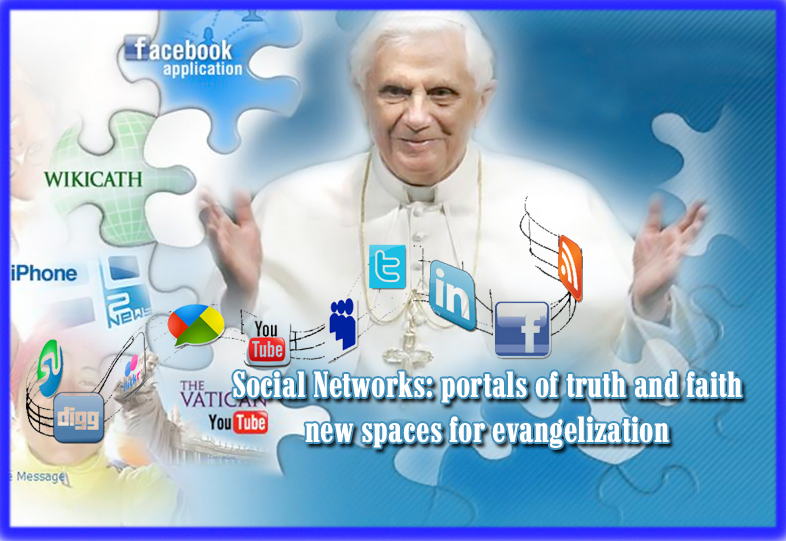
- Message for the 47th World Communications Day
-
Message of the FABC 10th Plenary Assembly Released -
10 FABC Plenary Assemblies -
Instrumentum Laboris of FABC X Plenary Assembly -
FABC Plenary Assemblies: An Attempt to Discern the Signs of the Times in Asia -
On the Conclusion of the Synod of Bishops -
Final List of Propositions of the Synod of Bishops -
Official Summary of the Final Message of the Synod of Bishops -
Pope's Lenten message 2013: Believing in charity calls forth charity -
Papal message for the World Day of Migrants and Refugees
Popular Post

- History of the Catholic Church in Vietnam
-
FABC Plenary Assemblies: An Attempt to Discern the Signs of the Times in Asia -
Message of the FABC 10th Plenary Assembly Released -
Instrumentum Laboris of FABC X Plenary Assembly -
10 FABC Plenary Assemblies -
Final List of Propositions of the Synod of Bishops -
Message for the 47th World Communications Day -
Official Summary of the Final Message of the Synod of Bishops -
Pope's Lenten message 2013: Believing in charity calls forth charity -
On the Conclusion of the Synod of Bishops


